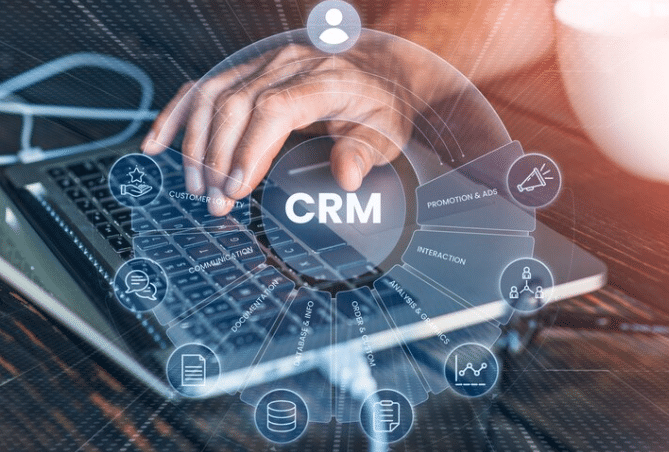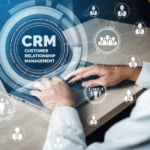Introduction
Customer Relationship Management (CRM) software is an essential tool for businesses of all sizes. It helps manage interactions with current and potential customers, streamlines processes, and improves profitability. Choosing the right CRM software can significantly impact your business’s success. This guide will explore the best CRM software options available, focusing on their features, benefits, and pricing to help you make an informed decision.
Top CRM Software for Small Businesses
CRM software is especially beneficial for small businesses as it helps manage customer relationships efficiently without the need for a large administrative staff. Key features that are particularly useful for small businesses include contact management, sales automation, and customer support tools.
Salesforce
Overview and Key Features: Salesforce is one of the most popular CRM platforms known for its robust features and scalability. It offers comprehensive solutions for sales, customer service, marketing automation, and more.
Pros:
- Highly customizable
- Strong integration capabilities
- Extensive third-party app marketplace
Cons:
- Can be expensive
- Steep learning curve
Pricing: Salesforce offers various pricing plans starting from $25 per user per month for basic plans and can go up significantly for more advanced features.
HubSpot CRM
Overview and Key Features: HubSpot CRM is a user-friendly platform that provides a range of tools for sales, marketing, and customer service. It’s ideal for small businesses looking for an easy-to-use solution with strong marketing capabilities.
Pros:
- Free basic version
- Intuitive interface
- Excellent marketing tools
Cons:
- Limited customization in the free version
- Advanced features can be costly
Pricing: HubSpot CRM offers a free version with essential features. Paid plans start at $45 per month and can increase based on additional features and the number of users.
Zoho CRM
Overview and Key Features: Zoho CRM is a flexible and affordable option that offers a wide range of features suitable for small to medium-sized businesses. It includes sales automation, lead management, and reporting tools.
Pros:
- Affordable pricing
- Strong customization options
- Integrated with other Zoho products
Cons:
- Can be complex to set up
- Limited third-party integrations
Pricing: Zoho CRM’s pricing starts at $14 per user per month, making it one of the more affordable options on the market.
Freshsales
Overview and Key Features: Freshsales is part of the Freshworks suite and offers powerful tools for lead management, email tracking, and sales automation. It’s designed to help sales teams close deals faster.
Pros:
- User-friendly interface
- AI-based lead scoring
- Good value for money
Cons:
- Limited customization
- Fewer third-party integrations
Pricing: Freshsales offers a free tier with basic features. Paid plans start at $15 per user per month.
Pipedrive
Overview and Key Features: Pipedrive is a CRM designed with sales teams in mind. It focuses on pipeline management and offers features that help teams visualize their sales processes and close deals efficiently.
Pros:
- Intuitive and easy to use
- Excellent pipeline management
- Affordable pricing
Cons:
- Limited features outside of sales
- Basic reporting capabilities
Pricing: Pipedrive’s pricing starts at $12.50 per user per month, making it a cost-effective choice for small sales teams.
Comparison Table
| CRM Software | Key Features | Pros | Cons | Starting Price |
|---|---|---|---|---|
| Salesforce | Comprehensive solutions, highly customizable | Strong integration, extensive app marketplace | Expensive, steep learning curve | $25/user/month |
| HubSpot CRM | User-friendly, excellent marketing tools | Free version, intuitive interface | Limited customization in free version, costly advanced features | Free, $45/month |
| Zoho CRM | Sales automation, lead management, affordable | Strong customization, integrated with Zoho products | Complex setup, limited third-party integrations | $14/user/month |
| Freshsales | AI-based lead scoring, email tracking | User-friendly, good value | Limited customization, fewer integrations | Free, $15/user/month |
| Pipedrive | Pipeline management, sales-focused | Intuitive, affordable | Limited features, basic reporting | $12.50/user/month |
Factors to Consider When Choosing a CRM
- Business Size and Needs: Consider the size of your business and the specific needs you have. Larger businesses may require more advanced features and customization options, while smaller businesses might benefit from simplicity and ease of use.
- Budget and Scalability: Determine your budget and look for CRM software that offers good value for money. Ensure the software can scale with your business as it grows.
- Integration with Existing Tools: Check if the CRM software integrates well with other tools and systems you are currently using, such as email marketing platforms, accounting software, and customer support systems.
Conclusion
Choosing the right CRM software is crucial for managing customer relationships and driving business growth. Salesforce, HubSpot CRM, Zoho CRM, Freshsales, and Pipedrive are among the best options available, each offering unique features and benefits. Evaluate your business needs, budget, and integration requirements to select the CRM that best fits your organization.
FAQs
- What is CRM software? CRM software helps businesses manage customer interactions, streamline processes, and improve profitability by organizing customer data and automating various functions.
- How does CRM software benefit small businesses? CRM software benefits small businesses by improving customer relationships, increasing sales, enhancing customer service, and providing valuable insights through analytics.
- What features should I look for in CRM software? Key features to look for include contact management, sales automation, marketing automation, customer service tools, and analytics.
- How much does CRM software typically cost? The cost of CRM software varies widely, from free versions with basic features to advanced plans that can cost several hundred dollars per month.
- Can CRM software integrate with other business tools? Yes, most CRM software can integrate with other business tools such as email marketing platforms, accounting software, and customer support systems, enhancing their functionality and providing a unified workflow.










